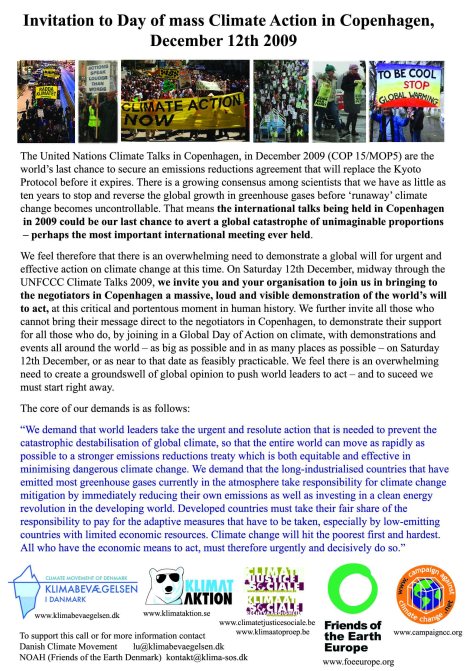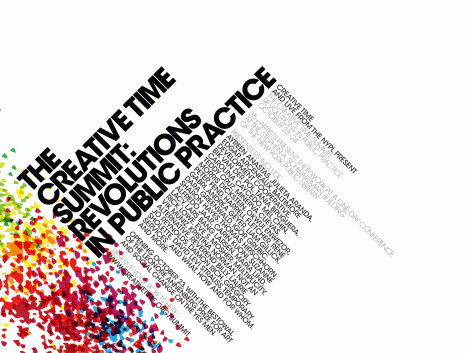Climate Justice Fast
In the evenings this week, I’m hosting Portland’s Climate Justice Fast at SEA Change. Visit www.climatejusticefast.org for more info. Below is a video interview I took of one the fasters, Sarah, who belongs to Touching Earth meditation community, www.touchingearth.wordpress.com and helps facilitate Food Not Bombs.
Here is an inspiring video from the Climate Justice Fast website:
surfing

surfing with dan attoe's class at short sands on the oregon coast...november 1st and beautiful

surfing with dan attoe's class at short sands on the oregon coast...november 1st and beautiful
you’ve got to keep at it
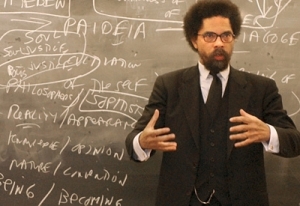
Dr. Cornel West
“I mean, I’m dealing with the depression of this rejection of the public option. What a joke! You’re going to get a bill through with no substance and poor people left dangling, working people left dangling, and a bonanza for the companies again? If that doesn’t reinforce the levels of cynicism, when you and I give our lives trying to call into question to get people to become active, if that doesn’t reinforce cynicism, what does? When do elites finally have to give substantive concessions to poor people and working people? The history of the human drama, right? Trying to preserve the dignity and decency of poor and working people. And you say to yourself, well, you know, we’ve got to keep—keep at it. “
~ Dr. Cornel West, the celebrated Princeton University professor of religion and African American studies, has just come out with his long-awaited memoir, Brother West: Living and Loving Out Loud. In it, he writes, “Until now, I’ve never taken the time to focus on the inner dynamics of my soul.”
http://www.democracynow.org/2009/9/30/dr_cornel_west_on_his_new
creative time
I’m looking forward to attending the Creative Time Summit in NYC! Especially seeing Amy Goodman and the Yes Men speak. I’ll also be rendezvousing with apexart and Smack Mellon while I am there to discuss upcoming exhibits. Fellow social practice folks: Helen Reed, Connie Hockaday, Jason Zimmerman, and Sandy Sampson will be coming on the adventure as well.
Here is my schedule in NYC
arrive – Friday, Oct. 23 6:30am @ Newark
- Friday ~ 6pm-8pm – go to hear a talk by Amy Goodman and the Yes Men.
- @ New York Public Library, 42nd + 5th
- Saturday ~ 10am-7:30om – Creative Time Conference
- @ New York Public Library, 42nd + 5th
- Sunday ~ 1pm meeting with Smack Mellon
- 92 Plymouth St., in Brooklyn right on the other side of the Manhattan Bridge
- Meet up with friends, family
- Meet up with Ingrid Remak to discuss vermicomposting under the Williamsburg Bridge and other NYC eco-stuff.
leave – Monday, Oct. 26 2pm @ LGA
money is a hot potato
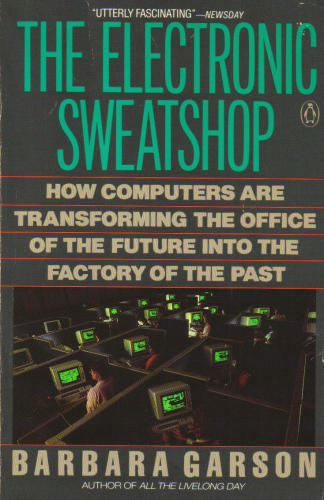
The Electronic Sweatshop by Barbara Garson
Barbara Garson
Writer
Lecture Notes 10.06.09 – Writes about work and American workers. 1972 Lords Town Auto Plant workers – assembly line 101 cars per day, strike. Catalyst for book on tailorized jobs – job with no beginning, middle, end. Bumblebee Tuna Fish Plant, all the live long day – the meaning and demeaning of routine work – what workers doing in their minds, finding dark meat sensual, keeping a pile next to you, seeing what you accomplish rather than letting it stream away down the line. Recession hits, factories closing down, moving abroad, Americans shift from industrial workers to knowledge workers? Recession first affects industrial, then knowledge. Scabing – adjunct faculty=knowledge workers jobs beginning to crumble. Dot com bubble burst=knowledge workers out of work. 1992 new kinds of tailorized work=computer jobs. In the 70s jobs were more plentiful. 1820-1970 hourly wage rose every decade. This changed in 1970s, since then wages have either declined or remained stagnant. If you want to keep house you grew up in you could either work more hours or borrow, and people did both. More of the jobs became contingent and lost benefits. Women went to work because needed to work more hours, not because of Feminist causes. Borrowing became a necessity for the worker and even more of a necessity for the businesses and banks. Since 1970s, people’s wages are stagnant or declining but productivity has been increasing. Chicken or the egg problem. Air Traffic controllers went on strike because too many collisions because planes were having to take off to frequently (more productivity), Regan broke their union, fired everyone=a public signal to kill unions and the government would back you up. NAFTA is another example-working to lower wages in the US. Globalism also intended to lower salaries. The massive redistribution of wealth after WWII, every American could go to college, every American had purchasing power to buy a house, so everything expanded, plus we were the only country that could produce much, US gave foreign countries credit to buy everything we could produce, this lasted somehow until sometime in the 1970s, then European countries started to compete with us. People make less but produce more. Profit is the result. But businesses aren’t getting more customers or expanding. Now the profit earned is not going back into the business, money is a hot potato, whoever holds it has to do something in it. You can put money into bank, banks can’t put their money into banks. GM forms bank GMAC, doesn’t pay workers enough to buy their cars so it lends people $ to buy their cars, charges interest, becomes a big underregulated bank. AIG insuring securitized mortgage bonds. Didn’t call it insurance because insurance in regulated and they’d have to put a little money away. Instead they called it a swap – “I will buy the bond from you if the people stop paying for the mortgage.” Like a lot of people buying life insurance on the same person and he died. These crises have always happened, at least you regulate the one that has just passed even if you can’t predict the next one. But in this current crisis that’s not happening! If we don’t take care of declining income globally then the next bubble is that much sooner. No one is taking care of it. Stimulus needs to go to green jobs.
Republic Windows and Doors – worker takeover – independent union, not tied to democratic party or worried about embarrassing itself – didn’t get 60 day notice or severance pay (there is no governmental mechanism to enforcement, so you must sue or sit in) – pointed at the bank, you own the factory, you owe us severance money, was a very radical thing – lots of publicity – owner was stealing bank-owned equipment to start a non-union factory – were able to locate a new owner to buy the bank, Serious Materials, bought it because of good publicity and green stimulus money.
Movie to check out: Maurice Velavique – Back to the Wall – French chemical factory takeover threatening to blow it up, union tradition is strong, people root for union.
NYC transit workers striked over Christmas, striking for pensions of next generation, city and people were behind them so it worked.
Quad City – worker takeover (failed?) – no publicity
compost on paper
Betty Hageman – Seattle Artist
using natural materials, painting microcosm ecosysems
http://www.bettyhageman.com/gallery.html
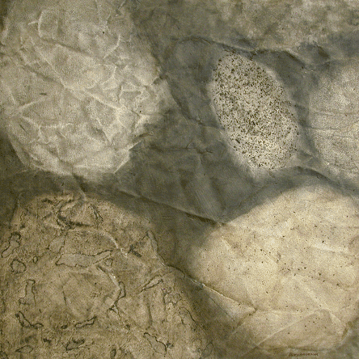
Betty Hageman, Minerals in Space, soil, compost and charcoal on canvas, 20 x 20 in.
where do you draw the line?
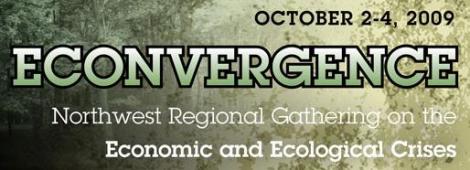
From Oct. 2 – Oct. 4, I participated in the Econvergence, a conference on the economic and ecological crisis. Fellow participants and presenters included a slew of inspiring activists.
OCT. 2:
I spoke on 2 panels:
“Coltan, Cell Phones, and Crisis in the Congo” – Presenters Casey Bush (poet), Dan Raphael (poet), Tom Webb (Bear Deluxe), Lisa Shannon (Run For Congo Women), Josh Seeds (ecologist?), Katherine Ball
This workshop explored topics such as the need for investigative journalism, the role of environmental arts in social change, and political art. Over 5 million people have died in the Congo in the last 10 years. Western consumerism is a major factor in the killings.
+) Lisa Shannon personified the Congo conflict by telling second hand stories of the struggles of Congolese people. One included the Lord’s Resistance Army breaking into a Congolese woman’s house, ordering her to give them all of her money. She gave them it all—$120—-and they wanted more. They found her children and husband and ordered him to give them more money. He didn’t have anymore, so they started beating him. His wife cried out to warn their neighbors. For this, the husband was immediately shot in the head and the wife was ordered to put her leg up on a chair. The LRA hacked her leg into 6 pieces with machetes. They put the pieces of her leg in the fire and ordered her six children to eat it. Her nine year old son refused abd was shot in the head. Then, the LRA torched the house. Luckily, the living children pulled the woman out of the fire. Meanwhile, the LRA moved on to the wedding at the house next door and burned 45 people alive.
+) Casey talked about how he is a poet and his “Apocalypse Found” co-writer, Joshua Seeds, is an ecologist (I think). Since mainstream media wasn’t doing in-depth reporting on the DRC, Casey and Joshua took it upon themselves to do the investigative journalism. Casey and Dan performed spoken word poetry simultaneously, from opposite ends of the stage; their voices overlapping and alternating, “Upgrade that download, You got the dynamite software, I’ve got the concrete hardware, Link it up link it up link it up.
+) I talked about the importance of Ryan Burns’s epic Profane Relics 10’x10’x6′ excavated cube of mud with human skeletons, gorilla skulls, pit mining tools, machine guns, cell phones, laptops, and other electronics emerging from its strata. The scale and content of the piece refused to be ignored and moved viewers to read the provided educational materials and instructions on how to act. I also talked about the importance of both directly protesting the actions of mining companies, coltan purchasers, and other oppressive corporations involved AND befriending these corporations and trying to change their actions by touching their hearts aka the Heartland Circle method. I suggest anyone interested in genocide reads Jared Diamond’s Collapse, especially the chapter on Rwanda.
+) Casey and Tom also tried to get the audience to call State representatives to take action. I liked this approach of a cell phone action. This action didn’t happen as planned because: the explanation of the action needed to be more direct (get out your cell phones, we’re going to call our representatives right here, right now), one representative needed to be called at a time and their phone number needed to be read slowly, clearly, and multiple times. A good learning experience.
I ALSO SPOKE AT:
“Barnraising Art in Portland”
Presenters:
Melissa Sillitoe and Luke Lefler, Show and Tell Gallery
Garret Potter, Community Organizer & Poet, The Family
Heather Mattie, Classical Revolution PDX
Katherine Ball, Curator, SEA Change Gallery
In spite of having the second highest unemployment rate in the US, creative people continue to live in-–and move to—Portland, determined to make a living that allows them to make their art. Like their 19th century predecessors, today’s artistic emigrants often rely on barnraising to make their art matter. Portland’s indie arts scene is at once individualistic—operating outside of juried galleries and vetted publications—but also heavily collaborative. Many events take place in free spaces and are created by many people sharing funds and energy. This event featured words from some of Portland’s community art leaders (45 minutes) and an interactive discussion (45 minutes) intended to foster community building. (written by Melissa Sillitoe).
+) Agenda:
11:00 Introduction
11:15 Discussion
* How have you creatively responded to the recession? (Katherine)
* Some people say that art is a middle-class concern or superfluous. Why do you feel art is relevant to poverty and social justice? (Heather
* How does collaboration make it possible for you to make art? (Luke)
* How is not being paid able to make art liberating to you? (Heather)
12:00 Art Project (led by Garret Potter)
+) During my question, I talked about the Free Market.
+) All three of these groups are doing amazing work in Portland. Melissa is opening up her living room as a gallery for art and poetry readings, Heather is organizing classical music performances in café’s and bars—making classical music available to the everyday person, Garret hosts a dinner and art night every Thursday, during which “The Family” shares a meal and then is given an “art prompt” as creative kerosene to light the night’s artistic fire.
+) The art event let by Garret went extremely well. Participants were delighted to create. We drew and collaged on 10-foot long plans of the Portland Light rail/Bus Mall.
NOAM CHOMSKY:
In the evening I saw Noam Chomsky speak which was incredible. I had listened to his book Hegemony or Survival on a 16-hour straight shot drive between Colorado and Minneapolis. Amazing he’s still going strong at 81 years old. His words deepened my understanding that the government is corrupt and serves the elite. Noam’s talk revolved around denouncing the Madisonian Compact that our governmental system follows today. I asked Noam for historical examples of how people’s actions have caused positive social change and he said to look at the successes of the 60s anti-war movement.
POLITICAL POETRY EVENT:
SEA Change hosted the Econvergence Political Poetry evening, organized by Jules Boykoff and Kaia Sand. Featured poets included:
Portland:
Katheryn Brooks
Jake Buffy
Jen Coleman
Allison Cobb
Kaia Sand
Dan Raphael
Jules Boykoff
Bay Area:
David Buuck (organizer of the Bay Area Research Group in Enviro-aesthetics [BARGE])
Rob Halpern
Philly:
CA Conrad
Frank Sherlock
Maine:
Jonathan Skinner (editor of ecopoetics)
Vancouver, BC:
Aaron Vidaver
Olympia:
David Wolach
+) I was impressed by how direct the poets were about environmental and social activism, the economy, and mass media. Aaron Vidaver read an 8-minute poem citing quotes reporting “the worst is behind us.” Compiled by googling: “the worst is behind us.” The event was a full house, filled with enthusiasm, and was exactly what I had hoped for when Alec and I came up with the idea for SEA Change.
from Uptick
Pace Action / Oct. 3, 2009
Econvergence/Portland, Oregon
some of us picking berries
to bring to the table
some of us jetting berries
from nation to nation
jetting nation to nation
Haitians are importing
rice & sugar, hungering
for what once grew nearby
some of us seeking return
on investments
the dispassionate rote
fury of financiers
up next: ‘making a killing
on the global crisis’
the rulers, on the make
a frolic for the camera
profit, poverty
the dispassionate rote
fury of bankers banking
on our disengaged
engagements
in the use of the, in the many of the
in the use of the, in the many of the
that circle is showing
the behavior of a sun
sun inked out
is night
in the land of the, in the land
of the many, by the hand of the few
taking a risk
on the uptick
at all hours, someone is laboring
centigrade uptick
a rise in temp
work in the land of the many
by the hand of the few
bailing
on the downturn
subprime
landgrab
meltdown
free speech ends when I call
fire in a crowded theater
but there is a fire
a burn is full of feeling
& it is in this time
I am alive
to love you
-Kaia Sand
SATURDAY, OCT. 3:
I spoke on: “Art as Action: Helping People See” with Anselm Hook (Locative Media Software Architect, hook.org) and Matthew Stadler (Writer, Editor, matthewstadler.com Book Binder, publicationstudio.biz, http://www.thebackroompdx.com)
By engaging in social activity, be it art, handing out food, or reclaiming an abandoned parking lot for dinner, we collectively engage the machinery of our intellect over issues of our environment. Change requires, consciousness, discourse, action, and engagement. As environmental media practitioners, we seek to constantly invigorate a dialogue about the relationship between ourselves, our food, our environment, and our choices about economic systems – to question them, to challenge them, and to consider new possibilities. In this panel we discussed practices, projects, and ideas that can help create and foster consciousness such that we may better steward our world.
+) I think the most interesting thing that came out of this conversation was Matthew’s theory that we should not call our art projects art. By calling them businesses or what they are (the free market is a free market (rather than an art project)) it throws a wrench in the system. By calling it art, it is isolated from our fucked up economic system. By calling it part of our economic system the economic system has to deal with it, but doesn’t know how to deal with it, thus creating bigger waves. Matthew is currently running a bookbindery until it either succeeds or goes broke. The bindery prints small runs, uses old manila folders for soft covers, and doubles as a social space. He also organized the Backroom dinners. He said when he calls the event a Backroom dinner, his neighbors are uninterested/intimidated and don’t participate in the dinner at his house. But if he goes and sets up his grill in the neighborhood park, then his neighbors happily interact with him. The “art” of the Backroom creates segregation.
+) There was an interesting discussion between Matthew and Anselm over money and projects. Matthew said he tries to be as transparent as possible with the money from his Backroom dinners. Anselm says he hides his financial contributions to Maker Lab.
FREE MARKET: was the jam! The best one I’ve facilitated all year! Incorporating gleaning helped complete the circle.
A group of Econvergence participants met up with me at the 1st Unitarian Church (conference headquarters, no it wasn’t religious), we did brief introductions and then walked to the market where we met with Jane Anne Morton of Urban Gleaners. She gave us clear garbage bags and nonprofit tax-deductible forms to hand to the vendors. We then went around to the stands and asked the farmers if they had any food to donate. Over half said no. But the other half was extremely generous. We gleaned: plums, greens, giant spongy loaves of focaccia, cauliflower, juicy peaches, cupcakes, herbs, lemon cucumbers and sweet peppers grown by a Turkish farmer. We then sat in circle and exchanged sentiments about the experience and past gleaning experiences. Some folks were part of Food not Bombs. I suggested the need/opportunity to start a gleaning program asking Portlanders with overgrown gardens to donate food. It would be great to give it to underfed neighbors or schools. We carried the loot back to the church, and mounded it onto three tables at the church. Econvergence participants were enticed by the smell of fresh dill and stoked by the free, fresh, beautiful food! Was fast paced, shop-till-you-drop esque. Best part was one women brought a box of applies she had gleaned from her next-door neighbors yard and added it to the mountain of green produce.
DERRICK JENSEN:
Derrick Jensen’s talk was a bold statement that 1) industrialized human civilization is not and never can be sustainable, therefore 2) we should dismantle industrialized infrastructure to bring down civilization. Although I am not interested in using violence to solve problems, I was very inspired by some things and critically contemplative other things that Derrick urged, including—
+) Where do you draw the line? At what point will you fight back? When they poison your mother, your daughter, your lover?
+) The salmon don’t care if we have activist meetings, sign petitions, rally protests, change our light bulbs. All they care about is it we restore the rivers to how they used to be. There used to be so many salmon the river was thick, white, you couldn’t see the bottom, fishermen used to be afraid to put their boats in the water. By eating the salmon we enter a compact in which we promise to ensure the survival of salmon as a species.
+) Violence is just a part of life. Violence with a lower case v. What’s the difference between killing massive amounts of flora and fauna or human beings?
+) We need to blow up 5 dams a day at minimum. There are 1 million dams in this country. At this rate, it will take us 40 years to get rid of them all to restore the river ecosystems. What would/should Portlanders if the Columbia was freed of damns and restored: MOVE. We should also blow up cell phone towers because they kill thousands of migratory songbirds.
+) Who’s going to do it? Not everyone needs to be violent, but we need to support the rebels, similar to Irish people protecting wounded IRA paramilitary soldiers.
+) Important to have a separation between those working above and underground.
+) Derrick is coming out with a book about how to form paramilitary groups, detailing what has worked historically, when a horizontal governments work, when hierarchies are necessary.
+) I had an interesting talk about Derrick Jensen with a friend from Food Not Bombs. He advocated for finding a peaceful means to restore ecological and social justice. I am interested in using this peaceful third way. The major thing I took away from Jensen’s talk is the urgency for action—the salmon don’t have 10 or 20 years. The time to act peacefully is now. I am also very interested in the Yes Men’s tactic of using satire, posing as imposters and proposing unjust, outlandish plans to instigate/empower people to speak out.
SUNDAY, OCT. 4
I went to “Corporate/Colonial False Solutions vs. Community-Based Solutions to the Climate Crisis
There is no question that addressing climate change will require sweeping changes to the global economy. This workshop discussed: Indigenous peoples’ resistance to the military-industrial-carbon complex and opposition to carbon offset mitigation schemes. It also touched on the inevitable effects of climate change underway in the NW. Speakers: Brian Frank of Rising Tide North America, Zoltan Grossman – Faculty, Geography and Native American Studies at Evergreen State College & Senior Research Associate at NW Indian Applied Research Institute
Notes:
+) Carbon Trading is the current centerpiece for the US’s and World’s climate change mitigation strategy. Everything tailored to fit into the carbon trading construct.
+) 2 types of emissions trading: Cap and Trade + Carbon Offset – both are awful.
+) Cap and Trade – in a nutshell will not reduce emission because if there are 2 factories polluting an equal amount, under Cap and Trade one factory can clean up their act and pollute less while the other factory can purchase the non-polluting factory’s carbon credits and pollute more, thus the same amount of pollution is still occurring. Pointcarbon.com. Trade in CO2 emissions make CO2 a form of property. Sulfur dioxide emissions cap and trade currently in effect, minimal reductions in SO2/acid rain have been achieved, a rise in SO2 emissions in factories in poor neighborhoods has been seen.
+) Kyoto Treaty – made in the USA.
+) US Climate Action Partnership wrote US policy–USCAP is made up of big corporations and big green. New members of this unique alliance include AES, Alstom, Boston Scientific Corporation, Chrysler, ConocoPhillips, Deere & Company, The Dow Chemical Company, Exelon Corporation, Ford Motor Company, General Motors Corporation, Johnson & Johnson, The Nature Conservancy, NRG Energy, PepsiCo, Rio Tinto, Shell, and Siemens Corporation. Founding members of USCAP include a number of major corporations: Alcoa, BP America, Caterpillar, Duke Energy, DuPont, FPL Group, General Electric, PG&E Corporation and PNM Resources — and four non-governmental organizations including: Environmental Defense, Natural Resources Defense Council, Pew Center on Global Climate Change and World Resources Institute. http://www.us-cap.org/about/index.asp
+) Carbon Offsets are an imaginary commodity created by what you hope happens from what you guess would have happened. Carbon trading uses the resources of poorer people and poorer regions as “offsets” for richer countries: it is between 50 and 200 times cheaper to plant trees in poor countries to absorb CO2 than it is to reduce emissions at source. Carbon Offsets frequently show a temporary rather than permanent reduction. Carbon offsets apply derivatives to carbon. Lacking a regulation. Croc.org.
+) Localizing resistance: Columbia Bridge between Vancouver and Portland – a carbon fuel expansion project. Olympia blue line march.
+) Important to recognize that Climate Change is here now. Spruce bark beetle devastating Washington, brown pelicans moving north.
+) Sense of community = survival
+) Important to involve youth in community planning
+) Book: Naomi Klein Shock Doctrine
I ALSO SAW “Art & Poetry in Action: Crises of Housing”
Through multi-media performance, creative collectives from Vancouver BC and Portland tackled the commodification of housing. The Happy Valley Project offered a lively analysis of the spate of foreclosures as part of our larger social landscape of an uneven distribution of shelter. The Unsquatted Houses Project will draw from a history of squatters’ movements to discuss squatting in the larger context of how we occupy our lands. Presenters Andrea Murray, Kristen Sheeran, Kaia Sand, Marcia Klotz, Friends of Woodward Squats.
Notes:
+) Squatting: Community support – farmers brought crates of apples. Poet produced and squatter edited daily newsletter explaining what’s happening at the squat, community solidarity, legal proceedings. Police broke up the squat and moved people into hotels, disorganized the squatters by combining organized squatters with drug users and mentally unstable. Medicalization of poverty made police’s hard takedown look progressive. Olympics – history of displacement, signs must be celebratory in front of cameras. Squatters moved out of hotels, formed tent cities that roved from park to park.
+) Owning a house – a constructed need. System is build on overspending – bubbles are inevitable due to poor design. Our system doesn’t allow you to distinguish between wants and needs.
+) Born again rhetoric present in google ads.
+) Refuse to pay mortgages. Foreclosures cost banks more $. They tick you by telling you that you will have bad credit for the rest of your life, not true.
+) At the same time congress deregulated financial institutions they rewrote the bankruptcy laws to benefit credit card companies and banks.
Student loans – UC Movement. Raising tuition 30-40%. Student loans force students into debt and future work.
